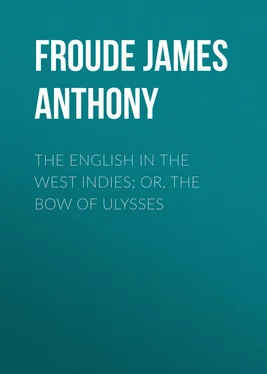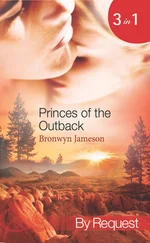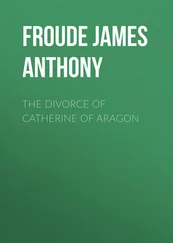James Froude - The English in the West Indies; Or, The Bow of Ulysses
Здесь есть возможность читать онлайн «James Froude - The English in the West Indies; Or, The Bow of Ulysses» — ознакомительный отрывок электронной книги совершенно бесплатно, а после прочтения отрывка купить полную версию. В некоторых случаях можно слушать аудио, скачать через торрент в формате fb2 и присутствует краткое содержание. Жанр: foreign_antique, foreign_prose, Путешествия и география, на английском языке. Описание произведения, (предисловие) а так же отзывы посетителей доступны на портале библиотеки ЛибКат.
- Название:The English in the West Indies; Or, The Bow of Ulysses
- Автор:
- Жанр:
- Год:неизвестен
- ISBN:нет данных
- Рейтинг книги:5 / 5. Голосов: 1
-
Избранное:Добавить в избранное
- Отзывы:
-
Ваша оценка:
- 100
- 1
- 2
- 3
- 4
- 5
The English in the West Indies; Or, The Bow of Ulysses: краткое содержание, описание и аннотация
Предлагаем к чтению аннотацию, описание, краткое содержание или предисловие (зависит от того, что написал сам автор книги «The English in the West Indies; Or, The Bow of Ulysses»). Если вы не нашли необходимую информацию о книге — напишите в комментариях, мы постараемся отыскать её.
The English in the West Indies; Or, The Bow of Ulysses — читать онлайн ознакомительный отрывок
Ниже представлен текст книги, разбитый по страницам. Система сохранения места последней прочитанной страницы, позволяет с удобством читать онлайн бесплатно книгу «The English in the West Indies; Or, The Bow of Ulysses», без необходимости каждый раз заново искать на чём Вы остановились. Поставьте закладку, и сможете в любой момент перейти на страницу, на которой закончили чтение.
Интервал:
Закладка:
It was the dry season, mid-winter, yet raining every day for two or three hours, and when it rains in these countries it means business. When the sky cleared the sun was intolerably hot, and distant expeditions under such conditions suited neither my age nor my health. With cocktail I might have ventured, but to cocktail I could never heartily reconcile myself. Trinidad has one wonder in it, a lake of bitumen some ninety acres in extent, which all travellers are expected to visit, and which few residents care to visit. A black lake is not so beautiful as an ordinary lake. I had no doubt that it existed, for the testimony was unimpeachable. Indeed I was shown an actual specimen of the crystallised pitch itself. I could believe without seeing and without undertaking a tedious journey. I rather sympathised with a noble lord who came to Port of Spain in his yacht, and like myself had the lake impressed upon him. As a middle course between going thither and appearing to slight his friends' recommendations, he said that he would send his steward.
In Trinidad, as everywhere else, my own chief desire was to see the human inhabitants, to learn what they were doing, how they were living, and what they were thinking about, and this could best be done by drives about the town and neighbourhood. The cultivated land is a mere fringe round the edges of the forest. Three-fourths of the soil are untouched. The rivers running out of the mountains have carved out the usual long deep valleys, and spread the bottoms with rich alluvial soil. Here among the wooded slopes are the country houses of the merchants. Here are the cabins of the black peasantry with their cocoa and coffee and orange plantations, which as in Grenada they hold largely as freeholds, reproducing as near as possible the life in Paradise of our first parents, without the consciousness of a want which they are unable to gratify, not compelled to work, for the earth of her own self bears for them all that they need, and ignorant that there is any difference between moral good and evil.
Large sugar estates, of course, there still are, and as the owners have not succeeded in bringing the negroes to work regularly for them, 5 5 The negroes in the interior are beginning to cultivate sugar cane in small patches, with common mills to break it up. If the experiment succeeds it may extend.
they have introduced a few thousand Coolies under indentures for five years. These Asiatic importations are very happy in Trinidad; they save money, and many of them do not return home when their time is out, but stay where they are, buy land, or go into trade. They are proud, however, and will not intermarry with the Africans. Few bring their families with them; and women being scanty among them, there arise inconveniences and sometimes serious crimes.
It were to be wished that there was more prospect of the Coolie race becoming permanent than I fear there is. They work excellently. They are picturesque additions to the landscape, as they keep to the bright colours and graceful drapery of India. The grave dignity of their faces contrasts remarkably with the broad, good-humoured, but common features of the African. The black women look with envy at the straight hair of Asia, and twist their unhappy wool into knots and ropes in the vain hope of being mistaken for the purer race; but this is all. The African and the Asiatic will not mix, and the African being the stronger will and must prevail in Trinidad as elsewhere in the West Indies. Out of a total population of 170,000, there are 25,000 whites and mulattoes, 10,000 coolies, the rest negroes. The English part of the Europeans shows no tendency to increase. The English come as birds of passage, and depart when they have made their fortunes. The French and Spaniards may hold on to Trinidad as a home. Our people do not make homes there, and must be looked on as a transient element.
CHAPTER VII
A Coolie village – Negro freeholds – Waterworks – Pythons – Slavery – Evidence of Lord Rodney – Future of the negroes – Necessity of English rule – The Blue Basin – Black boy and cray fish.
The second morning after my arrival, my host took me to a Coolie village three miles beyond the town. The drive was between spreading cane fields, beneath the shade of bamboos, or under rows of cocoa-nut palms, between the stems of which the sea was gleaming.
Human dwelling places are rarely interesting in the tropics. A roof which will keep the rain out is all that is needed. The more free the passage given to the air under the floor and through the side, the more healthy the habitation; and the houses, when we came among them, seemed merely enlarged packing cases loosely nailed together and raised on stones a foot or two from the ground. The rest of the scene was picturesque enough. The Indian jewellers were sitting cross-legged before their charcoal pans, making silver bracelets and earrings. Brilliant garments, crimson and blue and orange, were hanging to dry on clothes lines. Men were going out to their work, women cooking, children (not many) playing or munching sugar cane, while great mango trees and ceibas spread a cool green roof over all. Like Rachel, the Coolies had brought their gods to their new home. In the centre of the village was a Hindoo temple, made up rudely out of boards with a verandah running round it. The doors were locked. An old man who had charge told us we could not enter; a crowd, suspicious and sullen, gathered about us as we tried to prevail upon him; so we had to content ourselves with the outside, which was gaudily and not unskilfully painted in Indian fashion. There were gods and goddesses in various attitudes; Vishnu fighting with the monkey god, Vishnu with cutlass and shield, the monkey with his tail round one tree while he brandished two others, one in each hand, as clubs. I suppose that we smiled, for our curiosity was resented, and we found it prudent to withdraw.
The Coolies are useful creatures. Without them sugar cultivation in Trinidad and Demerara would cease altogether. They are useful and they are singularly ornamental. Unfortunately they have not the best character with the police. There is little crime among the negroes, who quarrel furiously with their tongues only. The Coolies have the fiercer passions of their Eastern blood. Their women being few are tempted occasionally into infidelities, and would be tempted more often but that a lapse in virtue is so fearfully avenged. A Coolie regards his wife as his property, and if she is unfaithful to him he kills her without the least hesitation. One of the judges told me that he had tried a case of this kind, and could not make the man understand that he had done anything wrong. It is a pity that a closer intermixture between them and the negroes seems so hopeless, for it would solve many difficulties. There is no jealousy. The negro does not regard the Coolie as a competitor and interloper who has come to lower his wages. The Coolie comes to work. The negro does not want to work, and both are satisfied. But if there is no jealousy there is no friendship. The two races are more absolutely apart than the white and the black. The Asiatic insists the more on his superiority in the fear perhaps that if he did not the white might forget it.
Among the sights in the neighbourhood of Port of Spain are the waterworks, extensive basins and reservoirs a few miles off in the hills. We chose a cool afternoon, when the temperature in the shade was not above 86°, and went to look at them. It was my first sight of the interior of the island, and my first distinct acquaintance with the change which had come over the West Indies. Trinidad is not one of our oldest possessions, but we had held it long enough for the old planter civilisation to take root and grow, and our road led us through jungles of flowering shrubs which were running wild over what had been once cultivated estates. Stranger still (for one associates colonial life instinctively with what is new and modern), we came at one place on an avenue of vast trees, at the end of which stood the ruins of a mansion of some great man of the departed order. Great man he must have been, for there was a gateway half crumbled away on which were his crest and shield in stone, with supporters on either side, like the Baron of Bradwardine's Bears; fallen now like them, but unlike them never, I fear, to be set up again. The Anglo-West Indians, like the English gentry in Ireland, were a fine race of men in their day, and perhaps the improving them off the earth has been a less beneficial process in either case than we are in the habit of supposing.
Читать дальшеИнтервал:
Закладка:
Похожие книги на «The English in the West Indies; Or, The Bow of Ulysses»
Представляем Вашему вниманию похожие книги на «The English in the West Indies; Or, The Bow of Ulysses» списком для выбора. Мы отобрали схожую по названию и смыслу литературу в надежде предоставить читателям больше вариантов отыскать новые, интересные, ещё непрочитанные произведения.
Обсуждение, отзывы о книге «The English in the West Indies; Or, The Bow of Ulysses» и просто собственные мнения читателей. Оставьте ваши комментарии, напишите, что Вы думаете о произведении, его смысле или главных героях. Укажите что конкретно понравилось, а что нет, и почему Вы так считаете.












